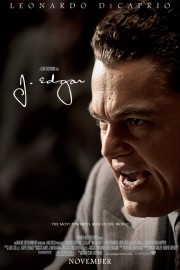J. Edgar
One of the great ironies of Clint Eastwood’s latest film is that, had J. Edgar Hoover still been alive, and director at the FBI, it’s very likely that Eastwood and his writer, Dustin Lance Black (who worked bold, biopic magic a few years ago on “Milk”), would find themselves publicly humiliated, or at the very least, subjected to warrantless wiretaps. See folks, George W. Bush wasn’t the first one to throw certain civil liberties out the window out of love of country; his only problem was lacking Hoover’s cleverness and tenacity.
Eastwood and Black take the public image of Hoover, as well as the whispers that have tainted his reputation as a tough-as-nails G-Man, and crafted a fascinating portrait of a man who used secrets against his enemies, and kept his own so close to his heart that it almost paralyzed him. It’s a great role, and almost certain Oscar bait for the actor with the cajones to take it on. Enter Leonardo DiCaprio, who has spent the past decade working with some of the great filmmakers in history to push himself as an actor, making a collaboration with Eastwood– arguably, one of the three greatest actor/directors in history –feel like a genuine event.
On the whole, I was enthralled by the tale Eastwood, Black, and DiCaprio spun, as we see Mr. Hoover, at the end of his career, dictating his memoirs to several different FBI agents, and giving us glimpses of the man as only he could have remembered it, meaning taking all the credit for capturing John Dillinger away from the actual agent who did so, Melvin Purvis, and even finding the identity (and actually apprehending) Bruno Hauptmann, the man who was found guilty of kidnapping the Lindbergh baby, even though doubts continue to linger about Hauptmann’s guilt. All of this self-grandizing takes places within a narrative that also digs deep into what drove this secretive man, from his relationship with his ultra-conservative mother (Judi Dench) to professional relationships that became deeply mired in further complexity with his long-time secretary (Helen Gandy, played by the excellent Naomi Watts) and Clyde Tolson (Armie Hammer), the younger man who became not only Hoover’s second-in-command at the Bureau, but also had a deep, emotional bond that could almost be considered star-crossed if the pair had given into long-buried romantic feelings.
While Eastwood remains a superb filmmaker when it comes to exploring the inner psychologies of his subjects, be they real people like Hoover, who kept secret files of all eight presidents he served under, or fictional characters like his own William Munny from “Unforgiven,” who also lived a long, isolated life filled with guilt and longing, “J. Edgar” doesn’t live up to the expectations of not just the filmmaker’s legacy, but Hoover’s; while DiCaprio is endlessly compelling in the lead role, there were too many times that I felt like I was watching his obsession-fueled performance as Howard Hughes from “The Aviator” more than I was an original performance. (The second-rate “old age” makeup he and Hammer are forced into during the later scenes lessen the impact of their performances as well.) Perhaps it’s inevitable that Eastwood and Black fall short in digging deep into the life of one of the most controversial figures in American history; enigmas are difficult to capture on-screen.










